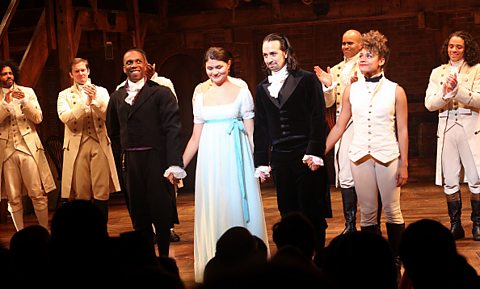Throughout the years, athletes have become fitter, faster and stronger ÔÇô breaking records and setting new personal bests in pursuit of sporting excellence.
But some of the finest achievements in sport were things people thought could never be done.
91╚╚▒Č Bitesize takes a look at some of the individuals and teams that dared to dream and achieved the impossible.
The Invincibles
As they powered their way to their first Premier League title, Liverpool were unbeaten after 27 games in the 2019/20 season as part of an overall 44 game run without defeat.
So, when they lost to Watford in February 2020, no one was more relieved than Arsenal supporters.
As LiverpoolÔÇÖs dream of an unbeaten 38-game season ended, it meant the Gunners remained the only team in Premier League history to not lose a single match in a league season.
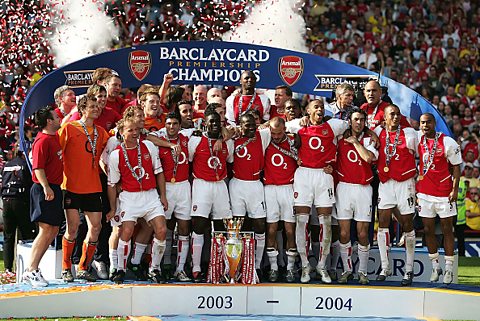
Arsenal won the title in the 2003/04 season, winning 26 games and drawing 12 times. The team were presented with a specially commissioned gold version of the Premier League trophy for their stunning achievement.
The run came as part of a total 49 game league unbeaten run, an English record. The team became known as the Invincibles ÔÇô a nod to the ÔÇśOld InvinciblesÔÇÖ nickname given to Preston North End who also went a whole season unbeaten in the old Division One in 1888/89, albeit from only 22 games.
Four-minute mile
Throughout the first half of the 20th Century, runners had pursued the dream of breaking the four-minute mile. And while several had got close, the barrier seemed just that ÔÇô a dream.
Times had been tumbling closer and closer to four minutes, with more than nine seconds being shaved off the record between 1923 and 1945. Swedish runner Gunder Haegg set the then-fastest time in 1945, completing the distance in 4:01.03.
On a windy evening in Oxford on 6 May 1954, Roger Bannister chased the target and with it, sporting immortality.
Ably assisted by Chris Chataway and Chris Brasher who helped set the pace, the British runner Bannister took to the track and reached the halfway mark of the mile in one minute 58 seconds.
As he crossed the line, the crowd held their breath awaiting the time. The announcer only got as far as saying ÔÇťthree minutesÔÇŁ before the spectators erupted in cheers.
The actual time was 3:59.4 ÔÇô with the record lasting just over six weeks. The current mile world record is 3:43.13, set by Hicham El Guerrouj of Morocco in 1999.
Perfect 10
The idea of a gymnast achieving a perfect score of 10 at the Olympics was long considered impossible.
So much so, that at the 1976 Olympics, the scoreboard didnÔÇÖt even have the function to show a score as high as 10.
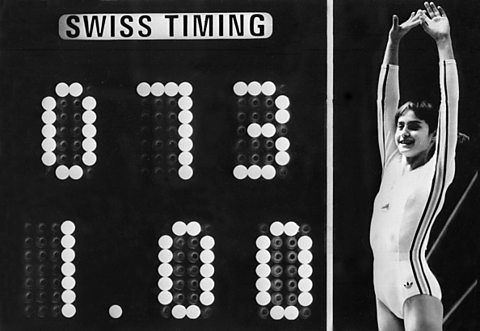
But such logistics didnÔÇÖt stop Romanian gymnast Nadia Comaneci at the Montreal Games.
The 14-year-old stunned the world with her routine on the uneven bars ÔÇô a performance deemed so incredible that the judges gave her a score of 10.
Unfortunately, the scoreboard displayed this as 1.00.
Throughout the rest of the 1976 Olympics, she earned six more scores of 10 in individual and team events, winning three gold medals as well as a silver and bronze.
Since ComaneciÔÇÖs groundbreaking performance, multiple athletes have gone on to achieve a Perfect 10 ÔÇô scoreboards have since been suitably upgraded.
1080
Think skateboarding and one of the first names to come to mind is Tony Hawk.
The legendary skateboarder was the first to ever successfully land a 900 ÔÇô a 2.5 revolution (a 900 degrees aerial spin) performed on a ramp. It's the sort of trick that's definitely worth leaving to the professionals!
Hawk first achieved the 900 in 1999 after years of trying and even repeated it in 2016 at the age of 48, admitting that it was likely his last-ever time doing so.
But in 2020, the sport saw new ground broken ÔÇô by an 11-year-old Brazilian boy.
Gui Khury managed to land a 1080 ÔÇô three full revolutions. He became the first skateboarder to ever land this seemingly impossible trick on a vertical ramp.
The Brazilian believed that his lighter frame made it easier for him to spin than for adults. Upon landing the trick, he received a call of congratulations from none other than Tony Hawk.
Miracle on Ice
With all their sporting accomplishments as a nation, it is quite rare for the United States to be an underdog.
But at the 1980 Winter Olympics at Lake Placid, New York, the American menÔÇÖs ice hockey team were up against the red-hot favourites of the Soviet Union.
The Soviets had won four consecutive gold medals at the Winter Olympics and five of the previous six in total and were also the defending world champions.
At a time in which the rules stated professionals could not compete at the Olympics, their team featured a number of world-class players, while the American team ÔÇô the youngest in their history ÔÇô was made up of amateurs. Nobody expected them to take the gold.
The two teams met in the final group stage. With ten minutes remaining, the US side took a 4-3 lead and bravely held on. American commentator Al Michaels counted down the final seconds on ABCÔÇÖs television coverage, ending with the now-iconic lines: ÔÇťDo you believe in miracles? Yes!ÔÇŁ
The US then beat Finland in their final game to secure the gold ÔÇô the unlikeliest of victories became known as the ÔÇśMiracle on IceÔÇÖ.

What is it like to get a sport scholarship at a US university?
Student football, baseball, basketball and more, all have massive followings.
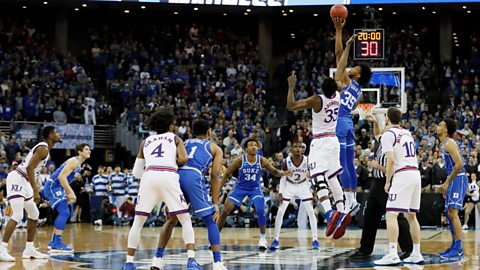
Five sports you didnÔÇÖt know were at the Olympics
We take a look at some of the events in history that used to be a part of the Olympics
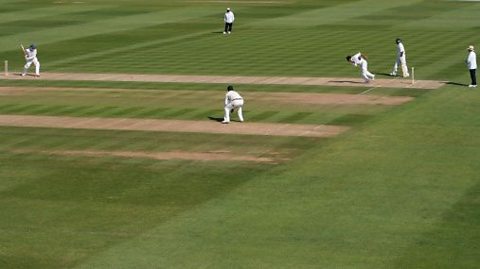
Five times genres were busted
We look at some genre-busting performances and products that truly innovated and broke the mould.
